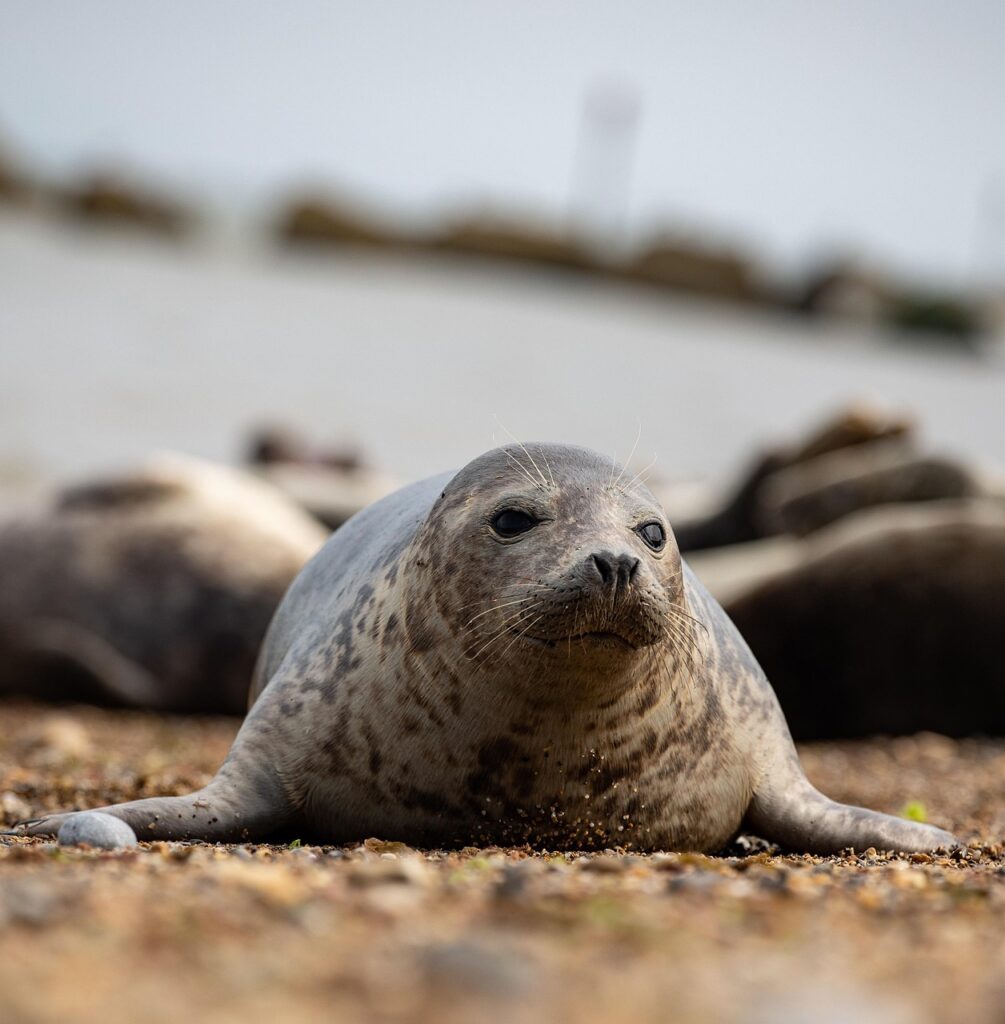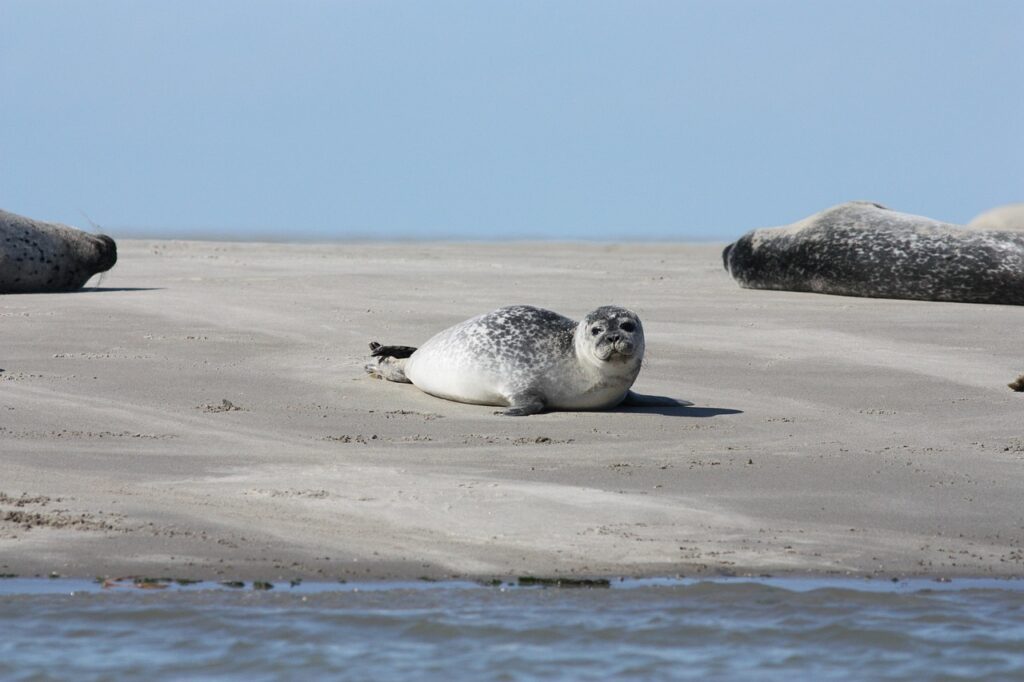The average person can hold their breath for 30-90 seconds which would allow for approximately a 30-80 foot dive without equipment. Harbor seals, however, can hold their breath for up to 30 minutes and dive as deep as 1,500 feet. This is because they have large lungs capable of taking in a lot of oxygen before diving. When they dive, they push most of the oxygen from their lungs into their blood so that their oxygen-filled lungs don’t increase their buoyancy.
Harbor seals usually stay in northern areas such as Maine, New Hampshire, and Canada to avoid the summer heat and to birth and raise their pups. When it starts to get colder down in the Narragansett Bay, they migrate and hang out in our waters from approximately November to March. But seals are more than just cute and cuddly friends, they have tons of cool adaptations to help them survive!

Image by <ahref=”https://pixabay.com/users/theotherkev-9436196/?utm_source=link-attribution&utm_medium=referral&utm_campaign=image&utm_content=6588055″>Kev</a> from <ahref=”https://pixabay.com/photos/harbour-seal-seal-animal-coast-6588055/“>Pixabay</a>
In addition to their ability to hold their breath for long periods, they can also slow their blood flow. Most mammals (including us!) have something called a dive reflex which reduces blood flow to the skin and slows the heart rate in order to conserve oxygen. In humans, this can usually be caused by holding our breath or taking a dip in cold water. Interestingly enough, harbor seals can actually control their dive reflex- yup you read that right- seals can consciously slow their heart rate and blood flow to their blubber!

Image by <ahref=”https://pixabay.com/users/alicia_chant-12303370/?utm_source=link-attribution&utm_medium=referral&utm_campaign=image&utm_content=5152836″>Alicia_Chant</a> from <ahref=”https://pixabay.com/photos/seal-marine-mammal-species-fauna-5152836/“>Pixabay</a>
In the 1960s, harbor seals were a rare sight in the Narragansett Bay due to hunting for their blubber, meat, and pelts. Thankfully, in 1972, the U.S. passed a federal law called the Marine Mammal Protection Act (MMPA). The groups in charge of enforcing this law are NOAA Fisheries, the U.S. Fish and Wildlife Service, and the Marine Mammal Commission.
The MMPA prohibits harassing, hunting, or taking anything from a marine mammal (alive or dead). Not only that, but the law also made it illegal to transport marine mammals or marine mammal products (bones, pelt, etc.) into or out of the United States without a permit. Another key part of this law is that if you encounter a marine mammal in the wild, you are to stay a minimum of 150 feet away, though some specific animals might have stricter laws making the minimum distance larger.
This law has had extremely positive impacts on harbor seal populations since it was passed. There used to be only dozens of harbor seals that would visit the bay during the winter, and now there are around 500 annually!